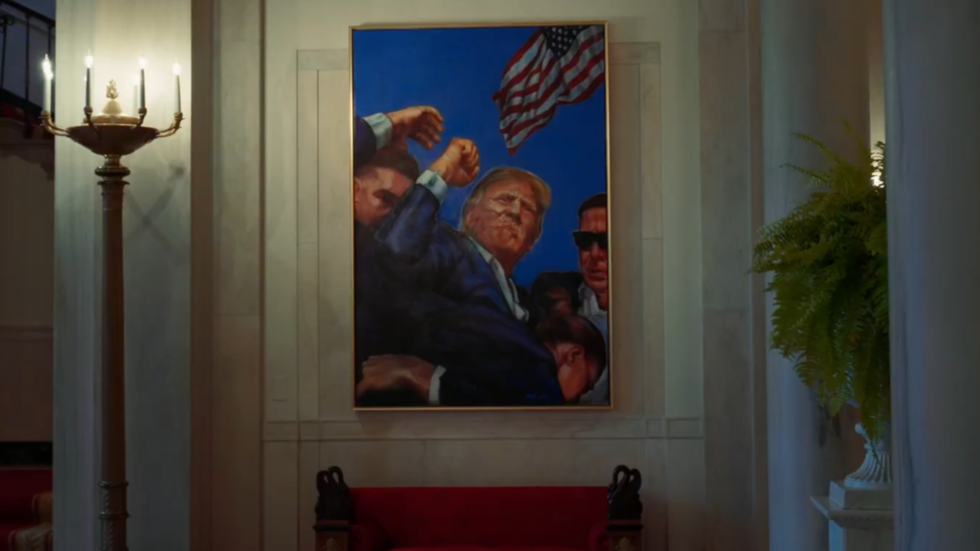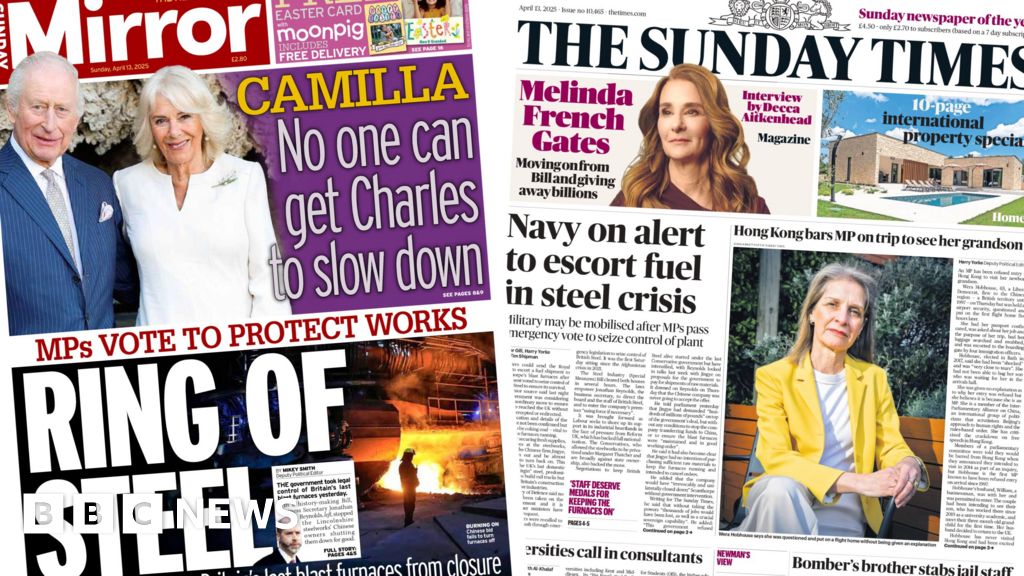Members of parliament in the United Kingdom approved on Saturday plans to take emergency control of British Steel's blast furnaces.
The decision to save the steel plant in the industrial town of Scunthorpe followed an emergency parliamentary session.
Keir Starmer's government recalled lawmakers, who had been on Easter recess, to pass a law in the House of Commons which allows Business Secretary Jonathan Reynolds to direct the company's board and workforce, ensure they get paid, and order the raw materials to keep the blast furnace running.
The Steel Industry (Special Measures) Bill was approved by the House and Commons and the House of Lords in a single day. The government are now awaiting royal assent, a formality in the modern UK Parliament. to be given to take full control of British Steel.
After Parliament passed the bill, Starmer travelled to Scunthorpe to meet the workers directly affected.
"You and your colleagues for years have been the backbone of British Steel, and it's really important that we recognize that," Starmer said. "It's your jobs, your lives, your communities, your families."
 There have been calls for British Steel to be nationalizedImage: Peter Byrne/PA Wire/picture alliance
There have been calls for British Steel to be nationalizedImage: Peter Byrne/PA Wire/picture allianceWho is British Steel and why is the plant important?
British Steel are the UK's last maker of virgin steel from iron ore, coke and other inputs. The company is owned by China's Jingye Group and employs 3,500 people at its Scunthorpe plant.
The future of the company has been in question after the government and the company failed to agree a funding deal to switch to greener steel production.
Jingye has said the Scunthorpe plant is losing £700,000 (€806,120) a day as a result of challenging market conditions and increased environmental costs.
 The emergency bill has the House of Commons after a three hour debateImage: House of Commons/UK Parliament/PA Wire/picture alliance
The emergency bill has the House of Commons after a three hour debateImage: House of Commons/UK Parliament/PA Wire/picture allianceAfter the Chinese company's decision recently to cancel orders for the iron pellets used in the blast furnaces, there were concerns that the UK would become the only country in the Group of Seven (G7) industrial nations without the capacity to make its own steel.
The repercussions would be huge for industries like construction, defense and rail and make the country dependent on foreign sources, a vulnerability that lawmakers from all political parties balked at.
Less carbon-intensive electric arc furnaces, which make new steel from scrap, are already being built at Tata Steel's Port Talbot site, following a government support package worth £500 million (€576 million).
The two blast furnaces at Port Talbot closed last year, and the new electric furnace will not start producing steel until late 2027 or early 2028.
What impact have the Donald Trump's tariffs had?
British Steel have struggled in an over-supplied global market with the rise in energy costs of recent years.
US tariffs imposed by Donald Trump of 25% on all steel imports, that took effect in March, delivered another blow.
The US receives about 5% of British steel exports, worth 400 million pounds a year, according to industry body UK Steel.
Edited by Jenipher Camino Gonzalez

 7 hours ago
5
7 hours ago
5









